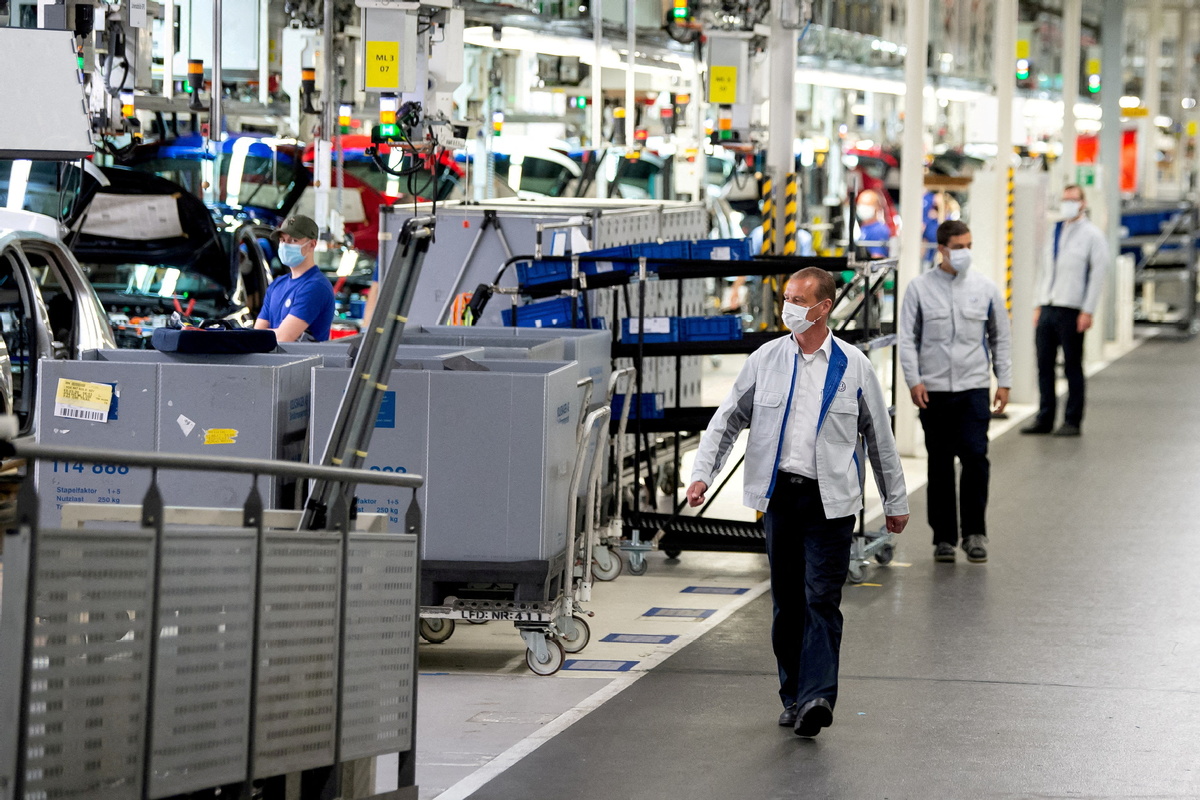Germany's factories get more bad news
By EARLE GALE in London | China Daily Global | Updated: 2022-06-08 09:45

A sharp fall in orders placed with German factories during April-the third such monthly drop-sent shivers through Europe's financial markets on Tuesday, as investors grappled with the prospect of a possible recession.
With Germany's manufacturing sector the main driver of Europe's economy, falls in factory orders always cause concern, but unexpectedly large and sudden ones are especially worrying.
The 2.7 percent fall in factory orders during April, revealed on Tuesday, followed a 4.7 percent drop during March and a 0.8 percent reduction during February. Economists had expected order levels during April to remain similar to those from March, so the decline was especially disappointing.
The fall in factory orders was particularly pronounced for capital goods used in production, which plunged by 4.3 percent in comparison to March. In addition, Germany's flagship auto industry had 8.6 percent fewer orders during April than during March.
Overall, April was not only down on the March total, but was 6.2 percent lower than the level in April 2021.
Economists blamed the poor performance on the Russia-Ukraine conflict, the high cost of energy, supply chain issues, and lockdowns in China aimed at stopping the spread of the novel coronavirus.
Germany's statistics office, Destatis, said that the increased uncertainty caused by the Russian-Ukraine conflict "continues to lead to weak demand, especially from abroad. However, companies still have well-filled order books".
The Guardian newspaper quoted Naeem Aslam, from the capital market company AvaTrade, as saying "economic conditions are becoming dire" within the eurozone's largest economy.
The financial platform and news website Investing.com said Germany now looks set for at least one quarter of economic contraction.
Manufacturers are also feeling the squeeze from both sides because, in addition to buyers keeping their hands in their pockets, producer price inflation in Germany, which is running at an annual rate of 33.5 percent, is making the production process much more expensive.
More detail on the state of Germany's economy will be unveiled later this week, with industrial production numbers for April set to be released on Wednesday, and current account data coming on Friday.
The Bundesbank, Germany's central bank, said in May second-quarter output in Europe's largest economy will rise "slightly at best."
Business and financial data experts Bloomberg said economists revised down their expectations for the German economy after the situation in Ukraine deteriorated rapidly during February.
The German government said in late April it now expects economic growth in 2022 to run at 2.2 percent, down from its previous estimate of 3.6 percent.
Additionally, a report released on Friday by the German Machinery Industry Trade Association showed machinery orders were down 7 percent during April, which is another indicator of a quickly slowing economy.
But Agence France-Presse said business confidence has, despite this, improved slightly in Germany recently as signs have emerged that the nation may avoid a full recession.
The agency said economists are hopeful the industrial-production data set to be released on Wednesday will show a 1.1 percent increase during April.
























